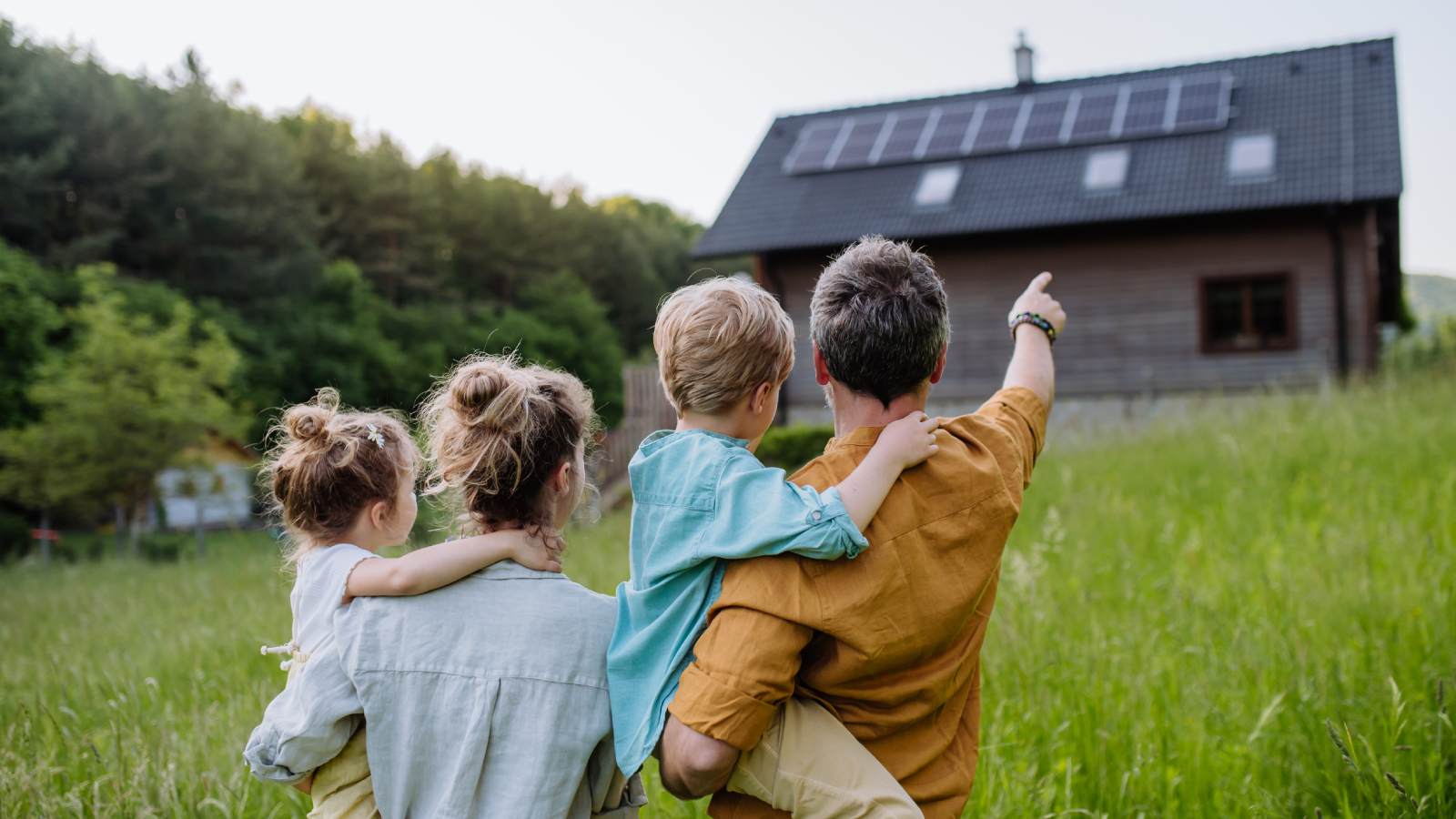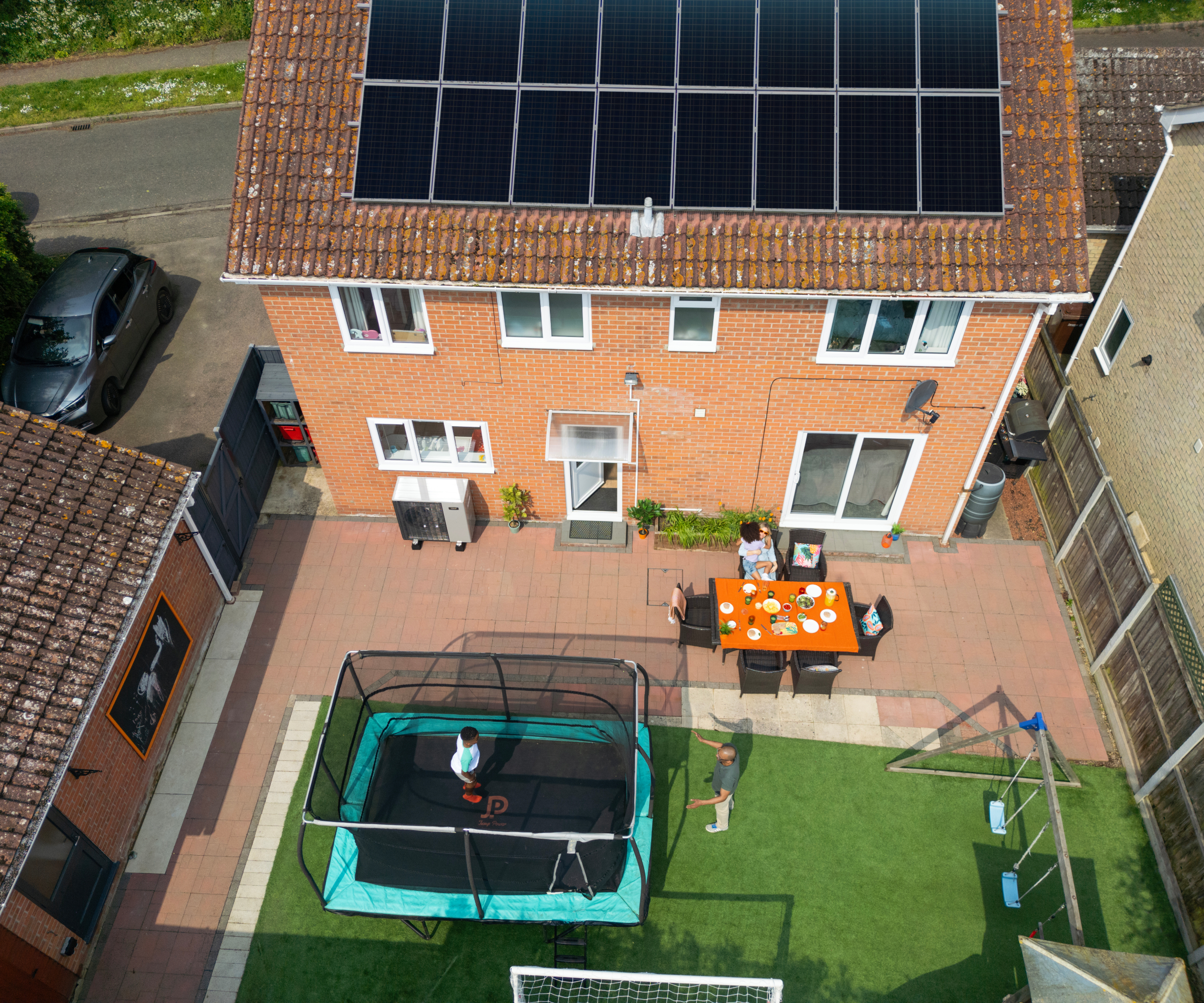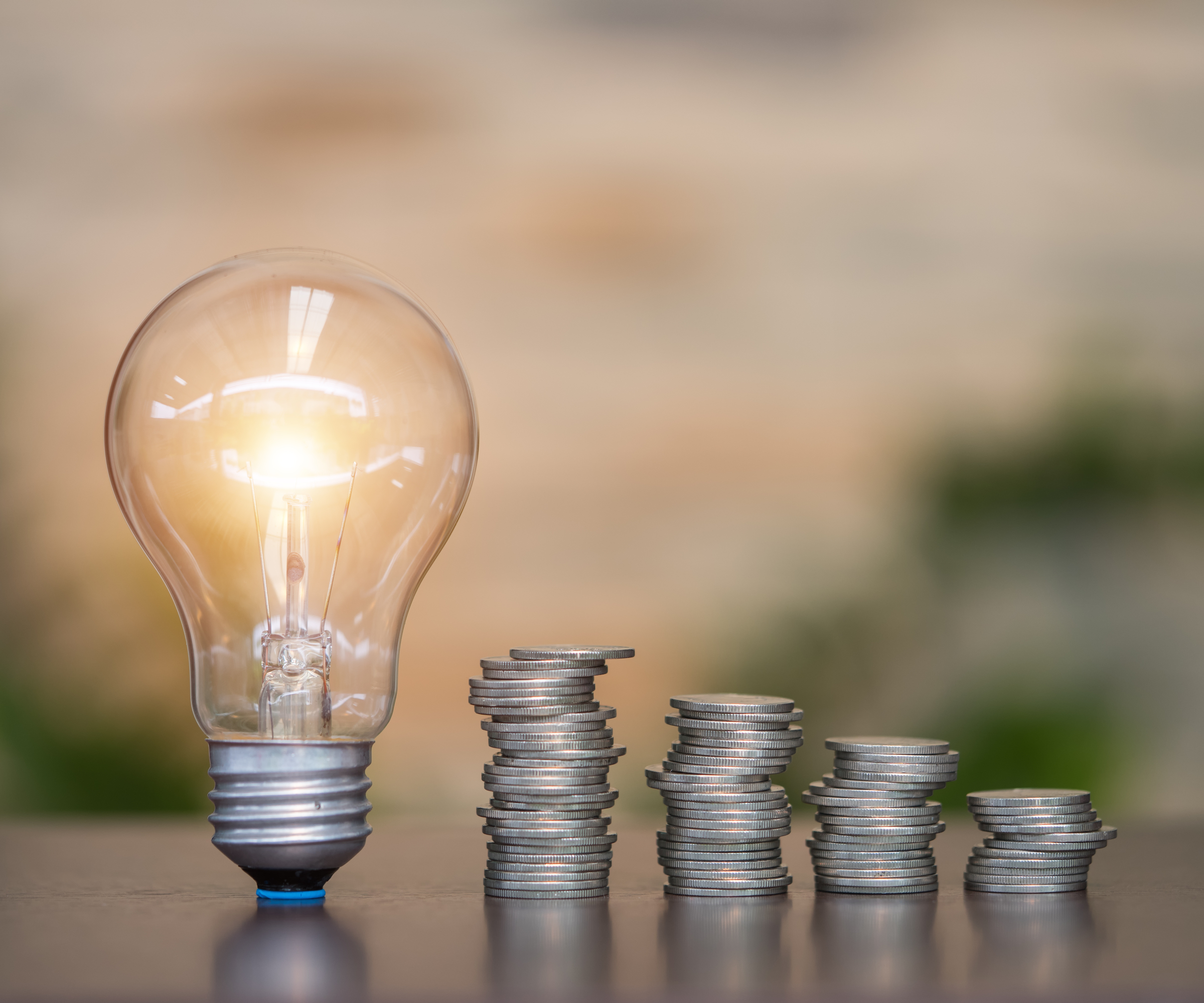How long do solar panels last? Your questions answered
Ask how long solar panels last and the usual response is 25-30 years. But is this the same for all systems and do they work efficiently until then?

As a renewable energy source, solar panels are an increasingly common sight on our homes. Designed to harness the natural power of the sun, they can help reduce energy bills, contribute towards a greener planet and return electricity to the National Grid if you generate more than you use.
But, how long do solar panels last and do they just stop working, or is there more to the ageing process? And do all parts of a solar panel system have similar longevity or will some elements need replacing sooner than others?
We take a look at how long solar panels last so you can make sure you get maximum return from your investment.
How long do solar panels last?
Solar pv vs solar thermal
When understanding how long do solar panels last, "reputable manufacturers will offer panels with a guarantee that they will be at least 80% efficient for 25-30 years," says Dan Hopcroft, Zero Carbon Homes director at EDF. "This industry standard lifespan ensures that you will benefit from solar energy for decades.
"The lifespan of solar panels is significantly influenced by factors such as the quality of the solar panels themselves, maintenance, and the climate you live in," adds Dan Hopcroft, but it's also important to note that while the projected lifespan for solar panels is the same - whether you have a solar pv or a solar thermal system (the latter providing hot water whereas solar pv provides electricity) - there are different parts of each system that also may not last as long as the panels.
Solar PV
While the panels in both cases have an average life of around 25 - 30 years, anyone who's looked into how do solar panels work, will know that with solar pv, an inverter is an essential part of the kit. It's the piece of the puzzle that takes the current (DC) created by the sun and turns it into AC electricity that is the type used to power your home and the appliances within.
However, the inverter doesn't have the same longevity as solar panels.
Bring your dream home to life with expert advice, how to guides and design inspiration. Sign up for our newsletter and get two free tickets to a Homebuilding & Renovating Show near you.
The Energy Saving Trust website says: "if you have a solar PV inverter, you need to replace this after around 12 years. This costs around £800, depending on system size and the manufacturer. Most inverters have warranties of five years as a minimum, which you can often extend up to 15 years."
However, it warns that, "you might find that a 15-year warranty costs almost as much as a replacement inverter, so consider it carefully."
If you are considering adding solar batteries to your PV system to store the electricity generated to use at a later date, these also have a shorter shelf life of anything from 5-15 years.

Solar thermal
Solar thermal on the other hand has less components that may need replacement sooner than the 25-30 years offered by the panels - mainly because it is only providing hot water rather than generating electricity.
That said, there are still parts that will need replacing. Pumps on average will last around 10 years, and some electrical components such as controllers may need replacing. However, neither of these are prohibitively expensive.
Check with your installer exactly what is covered by your warranty and what parts may need replacement during the overall lifespan of your solar system..

Dan is responsible for the development and sales of EDF’s zero carbon proposition, as well as meeting the company's government obligations on ECO and the Great British Insulation Scheme.
Solar lifespan explained
The lifespan of solar panels is not based on the fact that they suddenly stop working after this time. Failing overnight at any time would signify a problem rather than them reaching the end of their life.
Instead, the most apparent sign of degraded solar panels says Dan Hopcroft, "is decreased energy output. If your panels are producing less electricity than they used to, taking longer to charge a battery, or are unable to charge it fully, this could indicate a problem."
"Towards the end of their lifespan, your solar panels efficiency will likely decline," says Tamara Birch, senior writer for The Eco Experts. "If you’re unsure about the longevity of your panels you can always check with your installer who will be able to advise you."
"Experts estimate that solar panels degrade between 0.2% to 0.5% per year," says Dan Hopcroft. "Various types of degradation can occur, including age-related, light-induced, potential-induced, thermal cycling, damp heat or humidity freeze, and UV exposure."
Subsequently, the degrading process means the amount of electricity your solar panels generate will fall on an annual basis. While this is minimal each year, by the time they have been in use 30 years, they will potentially need to be replaced in order to be considered sustainable.


Tamara Birch has been writing about environmental topics for over four years, including advising small business owners and homeowners on cost-effective ways, like solar panels and energy-efficient products to help them become more sustainable.
FAQs
Can I do anything to extend the life of my solar panels?
As with most things in life, taking care of your solar panels will help increase their life span and ensure the answer to 'do solar panels add value to your home' remains yes. "Solar panels have a substantial lifespan of around 25-30 years," says Tamara Birch. "However, if you carry out regular maintenance, they could surpass the 30 year mark."
Knowing how to clean solar panels and undertaking measures such as solar panel pigeon proofing will all help to keep them working as efficiently as possible. Likewise, making regular inspections to check for small cracks, corrosion to the frames or any damage from trees is important to reduce the risk of them degrading more quickly.
Using a reputable installer at the start of the process will also ensure you invest in a good quality product that is fitted correctly and less likely to fail or degrade more quickly.
Can I replace one panel at a time?
"You can replace one panel at a time," says Dan Hopcroft, "but we always recommend using the same panels. However, in some cases, you can use similar panels if you match the electrical specifications (such as wattage, number of cells, and physical dimensions) of the new panels with your old ones. This can be tricky, so be careful."
If replacing panels, Dan also notes how the electrical cabling would be subject to an electrical assessment to determine if any replacement was required.
Once solar panels have come to the end of their life, in general they are recycled - contrary to one of the myths about solar panels which suggests that they go to landfill.
"Panels are recyclable," confirms Dan Hopcroft, "as they are made primarily of glass, plastic, and aluminium, which are materials recycled in large quantities. However, the separation process can be complex and requires advanced machinery."
For more information on adding solar panels to your home, start by checking out your solar panel roof suitability before taking a look into the cost of solar panels.

Sarah is Homebuilding & Renovating’s Assistant Editor and joined the team in 2024. An established homes and interiors writer, Sarah has renovated and extended a number of properties, including a listing building and renovation project that featured on Grand Designs. Although she said she would never buy a listed property again, she has recently purchased a Grade II listed apartment. As it had already been professionally renovated, she has instead set her sights on tackling some changes to improve the building’s energy efficiency, as well as adding some personal touches to the interior.